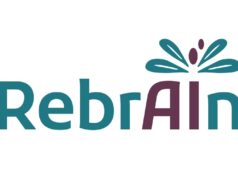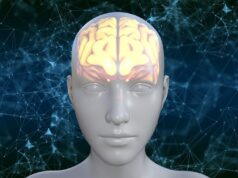
A study intended to gain insight into prevailing ethical issues surrounding the use of deep brain stimulation (DBS) in adolescents with obsessive-compulsive disorder (OCD) has found that concerns relating to the conditions of paediatric patient decision-making, a lack of evidence on the outcomes and potential unknown effects of DBS in this patient population, and the importance of exhausting other treatment options before considering DBS, all featured prominently.
This study, which involved conducting semi-structured interviews with 25 clinicians to discuss DBS use in adolescent OCD patients, is published in Brain Stimulation by Gabriel Lázaro-Muñoz, an assistant professor in the Center for Bioethics at Harvard Medical School in Boston, USA, and colleagues.
“We identified OCD clinicians’ perspectives about the most pressing ethical issues when considering DBS for adolescents with OCD and examined considerations that appear to be exacerbated when using paediatric DBS for psychiatric, compared to movement, disorders,” Lázaro-Muñoz et al write in their report.
“To better understand the ethical and policy implications of the translation of DBS for OCD, further biomedical research and ethical examination of these pressing issues are needed. Particular attention should be paid to the effective development and implementation of DAs [decision aids] for paediatric DBS, clinician participation in data registries to expand the evidence base, and the establishment of clear guidelines for patient selection.”
The authors initially note that refractory OCD among adults was the first psychiatric indication of DBS to receive a US Food and Drug Administration (FDA) Humanitarian Device Exemption (HDE), and that—given this HDE approval and the encouraging evidence that has since emerged—exploration of DBS for OCD may be expanded to adolescents in the future. There is already a precedent for the transition of DBS in adults to children in the case of dystonia, they add, but tempter this by stating that the risk-benefit analysis of paediatric DBS for OCD may be more complex and raises different ethical questions compared to paediatric DBS for dystonia.
As such, Lázaro-Muñoz and colleagues set about investigating these ethical issues via semi-structured interviews with a total of 25 clinicians specialising in child and adolescent OCD, all of whom were trained in and had experience treating minors with refractory OCD. In their report, the authors also note that they sought to ensure these clinicians represented a range of clinical backgrounds—including psychiatrists, psychologists, and licensed professional counsellors—and that the sample consisted of clinicians practising in various regions across the USA.
These interviews, which were an average of 50 minutes in length, were transcribed verbatim, coded with MAXQDA 2018 software, and subsequently analysed using thematic, qualitative content analysis in order to identify emergent themes. According to Lázaro-Muñoz et al, this analysis of the clinicians’ responses identified five pressing ethical issues:
- Conditions of decision-making, such as adolescents’ capacity to assent (noted by 80% of clinicians)
- Evidence, unknowns, and risk-benefit analysis, including the lack of robust clinical trials and potential effects on brain development (68%)
- Bias, undue influence and conflicts of interest that could potentially affect patient referral for paediatric DBS (28%)
- Access to paediatric DBS—specifically financial and geographical barriers (24%)
- Refractory status and exhaustion of other treatments prior to considering paediatric DBS (20%)
The authors also note that two of these five concerns—those relating to bias, undue influence and conflicts of interest, and to patient access—were highlighted as being relevant to both paediatric and adult DBS, while the remaining three were seen as being exacerbated in the paediatric DBS setting. In addition, when the clinicians were asked whether paediatric DBS therapy for psychiatric disorders raises different concerns to paediatric DBS for movement disorders, 44% described differences, 40% described both similarities and differences, and four clinicians (16%) maintained there were no differences.
As well as stating that “we need to be attentive to the ethical challenges that may emerge, and be prepared to take action to help ensure the wellbeing of children and adolescents” as this indication for DBS continues to be expanded, Lázaro-Muñoz et al conclude that strategies to address these clinician concerns include implementation of validated decision support tools and further research into the outcomes of paediatric DBS for OCD to help establish clear guidelines for patient selection.









